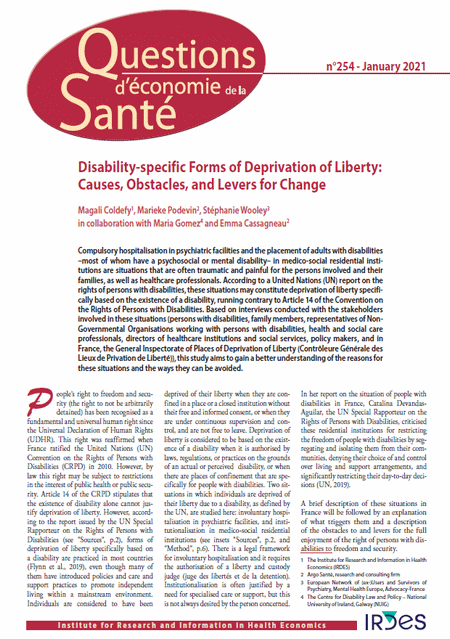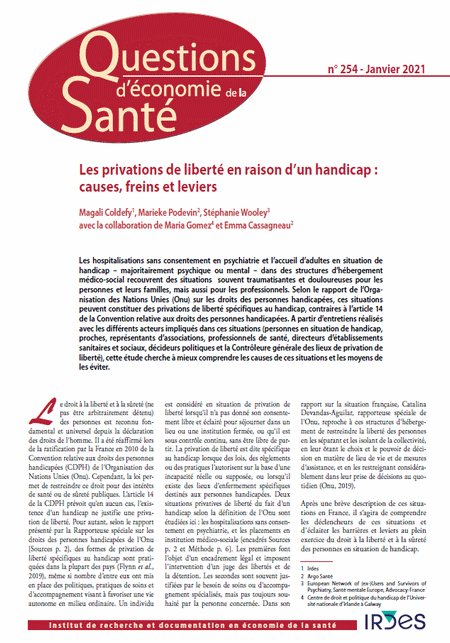Disability-specific Forms of Deprivation of Liberty: Causes, Obstacles, and Levers for Change
Coldefy M. (IRDES), Podevin M. (Argo Santé, research and consulting firm), Wooley S. (European Network of (ex-)Users and Survivor of Psychiatry, Mental Health Europe, Advocacy-France) in collaboration with Gomez M. (The Centre for Disability Law and Policy - National University of Ireland, Galway (NUIG)) and Cassagneau E. (Argo Santé, research and consulting firm)
Questions d'économie de la santé (Issues in Health Economics) n° 254 - January 2021
ABSTRACT
Compulsory hospitalisation in psychiatric facilities and the placement of adults with disabilities -most of whom have a psychosocial or mental disability- in medico-social residential institutions are situations that are often traumatic and painful for the persons involved and their families, as well as healthcare professionals. According to a United Nations (UN) report on the rights of persons with disabilities, these situations may constitute deprivation of liberty specifically based on the existence of a disability, running contrary to Article 14 of the Convention on the Rights of Persons with Disabilities. Based on interviews conducted with the stakeholders involved in these situations (persons with disabilities, family members, representatives of Non- Governmental Organisations working with persons with disabilities, health and social care professionals, directors of healthcare institutions and social services, policy makers, and in France, the General Inspectorate of Places of Deprivation of Liberty (Contrôleure générale des lieux de privation de liberté)), this study aims to gain a better understanding of the reasons for these situations and the ways they can be avoided.
See also Questions d'économie de la santé n° 254 in French: Les privations de liberté en raison d'un handicap : causes, freins et leviers.

